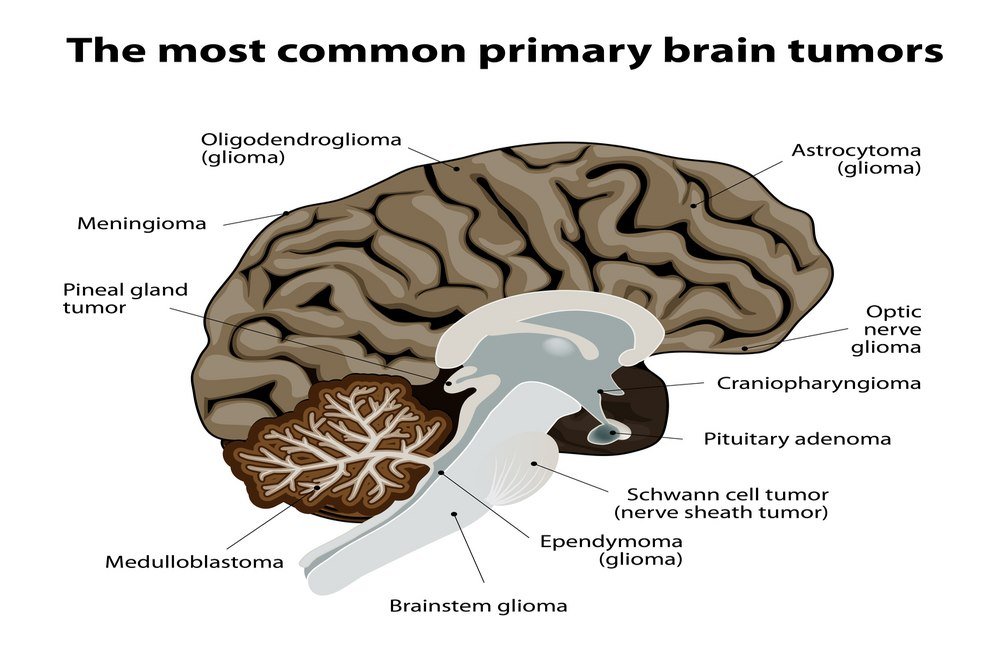Types Of Brain Tumors

- Astrocytoma:
Astrocytes are star shaped neuron cells, and they are most abundant cell in the central nervous system. The abnormal or uncontrolled growth of astrocytes causes astrocytoma. Astrocytoma is a more common occurrence in adults than in children. Symptoms can help predict the location of the tumor. If the tumor is located in the brain, it causes seizure, headaches and nausea. However, weakness, exhaustion and dysfunction of any part indicates that it is located in the spinal cord.
- Meningioma:
Meninges are the three membranes present beneath the skull, which protect the brain and spinal cord. Any tumor that happens to be in the meninges is called meningioma. Sometimes the presence of this tumor goes unrecognized and it does not require any immediate treatment, but it starts causing a problem, because it pressurizes brain, vessels and arteries present close to the tumor.
- Gliomas:
Glial cells or neuroglia, are not neurons, but supporting cells, which promote the proper functioning of neurons. Any tumor involving glial cells is called a glioma. In adult cases, it is mostly malignant, so it spreads to other areas as well. They are the most common primary brain tumors. The location of theses tumors within the brain determines how easy or difficult the treatment is going to be.
- Pituitary adenoma:
Pituitary gland performs many functions in the human body such as hormones release and regulation. Pituitary adenoma is caused if a tumor arises in the gland. The tumor disturbs the body’s hormonal level. Loss of vision, headaches, and sexual disturbance, are the common symptoms of pituitary adenoma.
- Pineal tumors:
The pineal gland is a very small gland, which is surrounded by the brain and controls the sleep cycle by receiving and judging information from the surrounding environment. Any tumor in the pineal gland is called a pineal tumor. Surgery can be performed for the removal of tumors. If the gland is completely removed the circadian rhythm is lost and sleep cycle is abolished.
